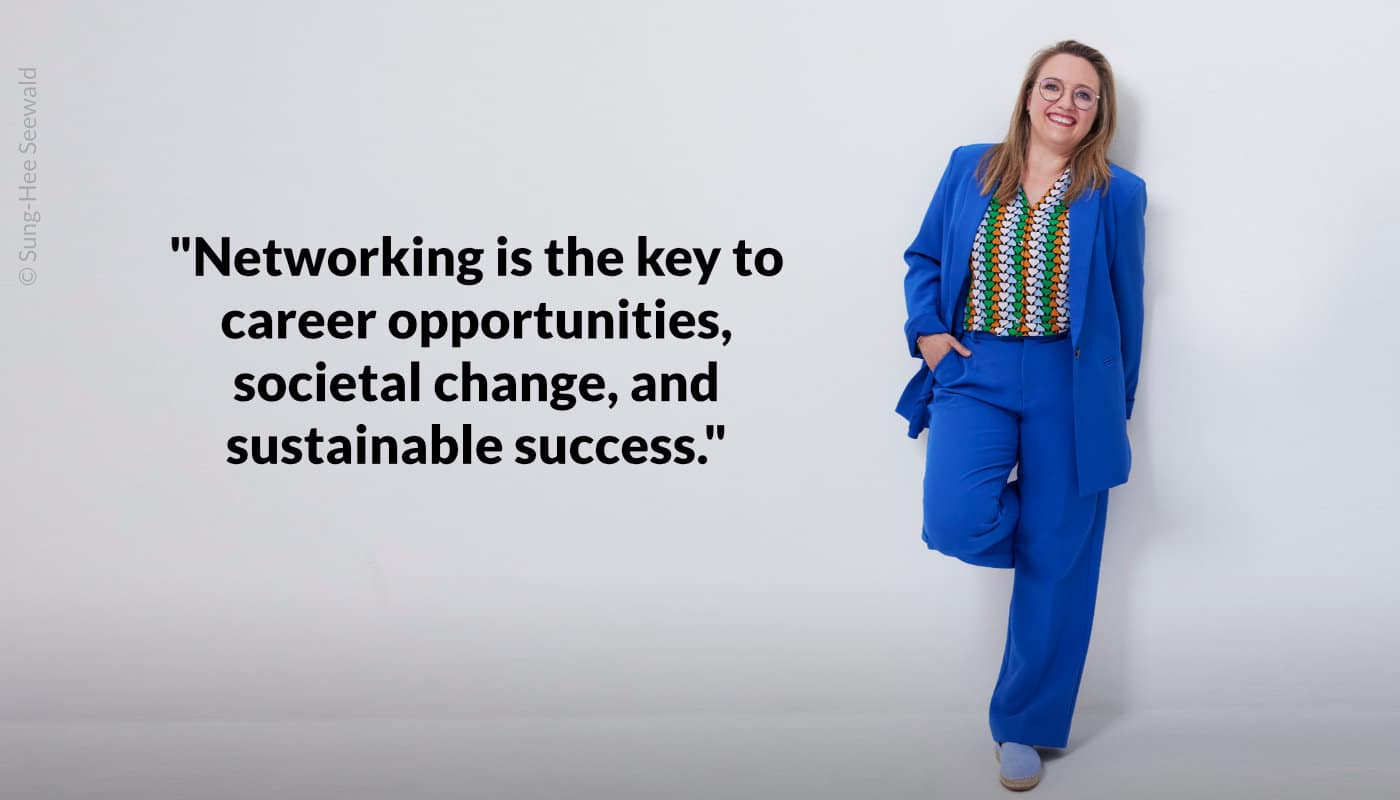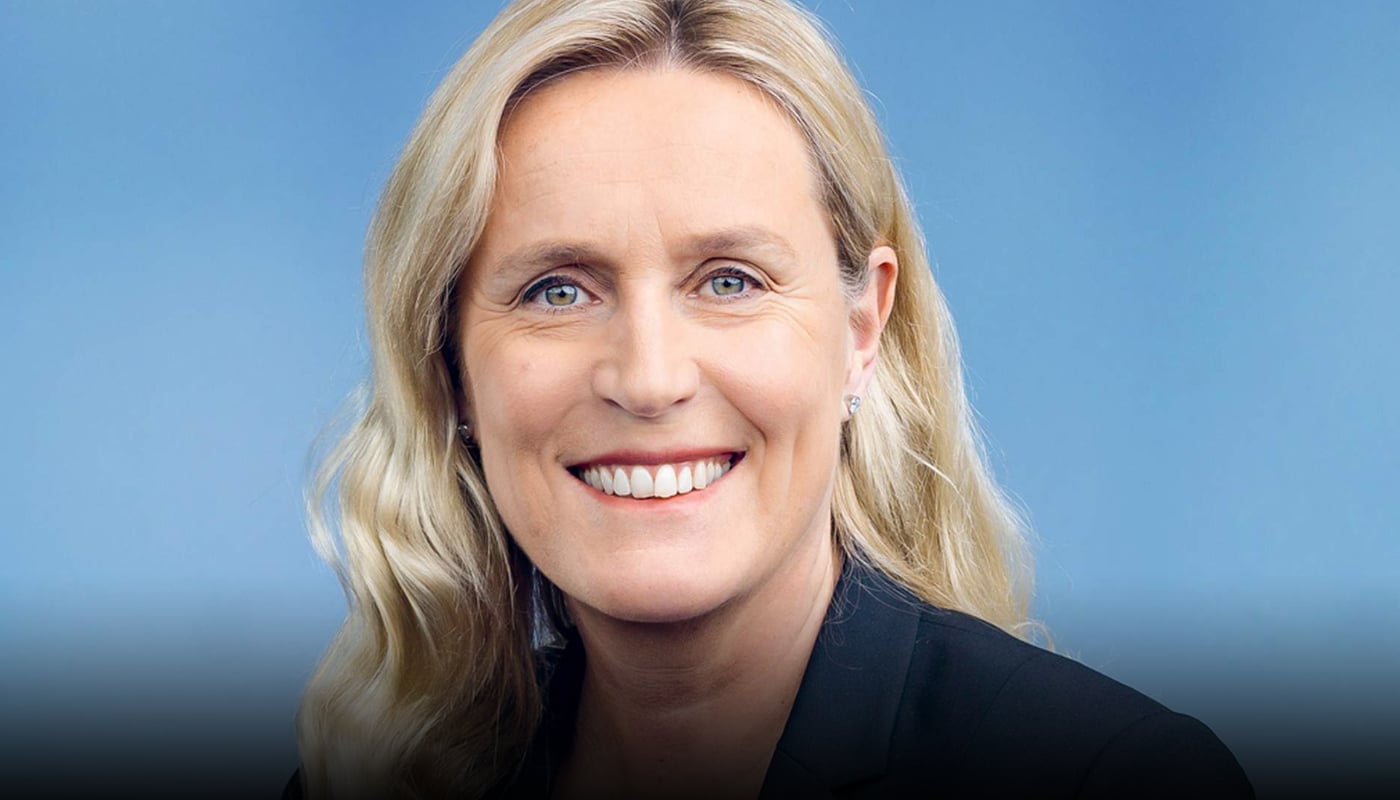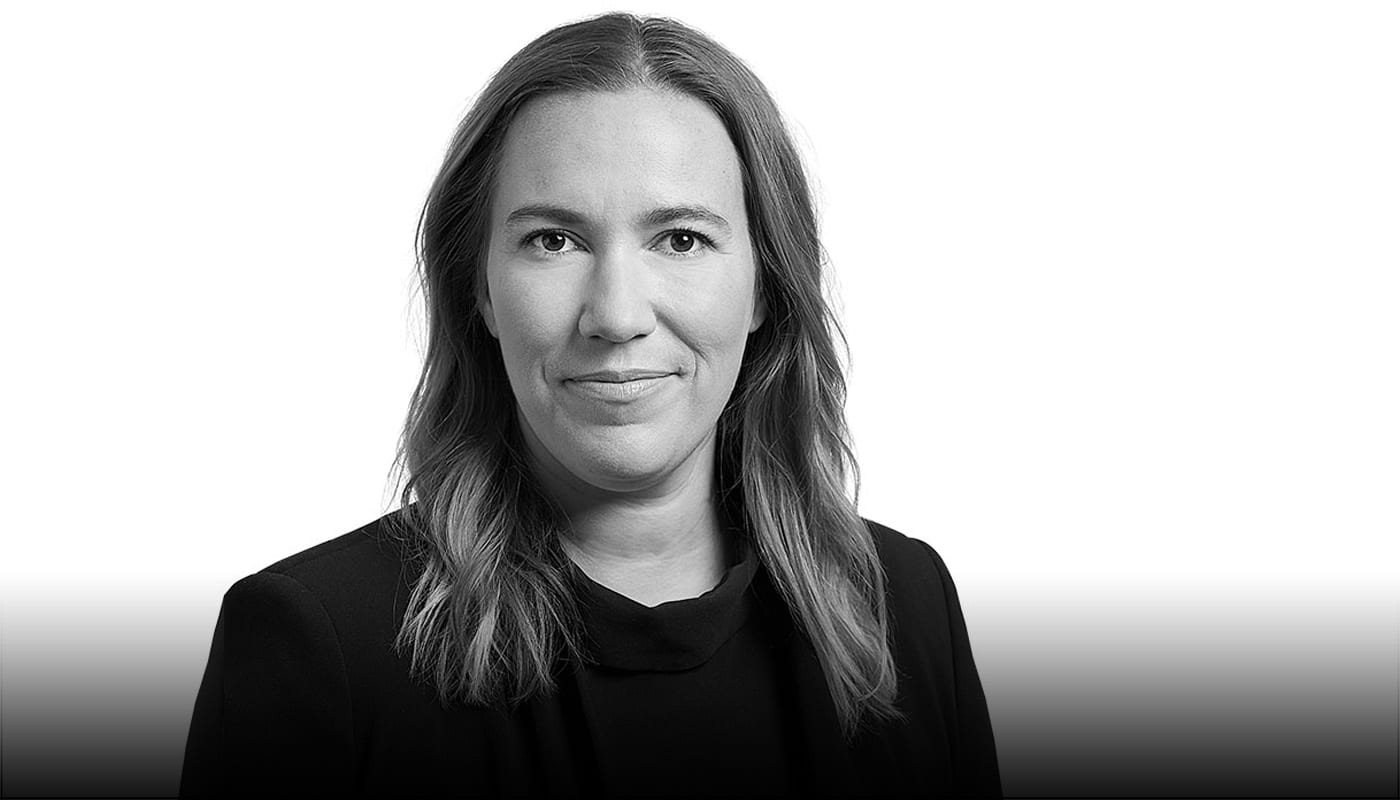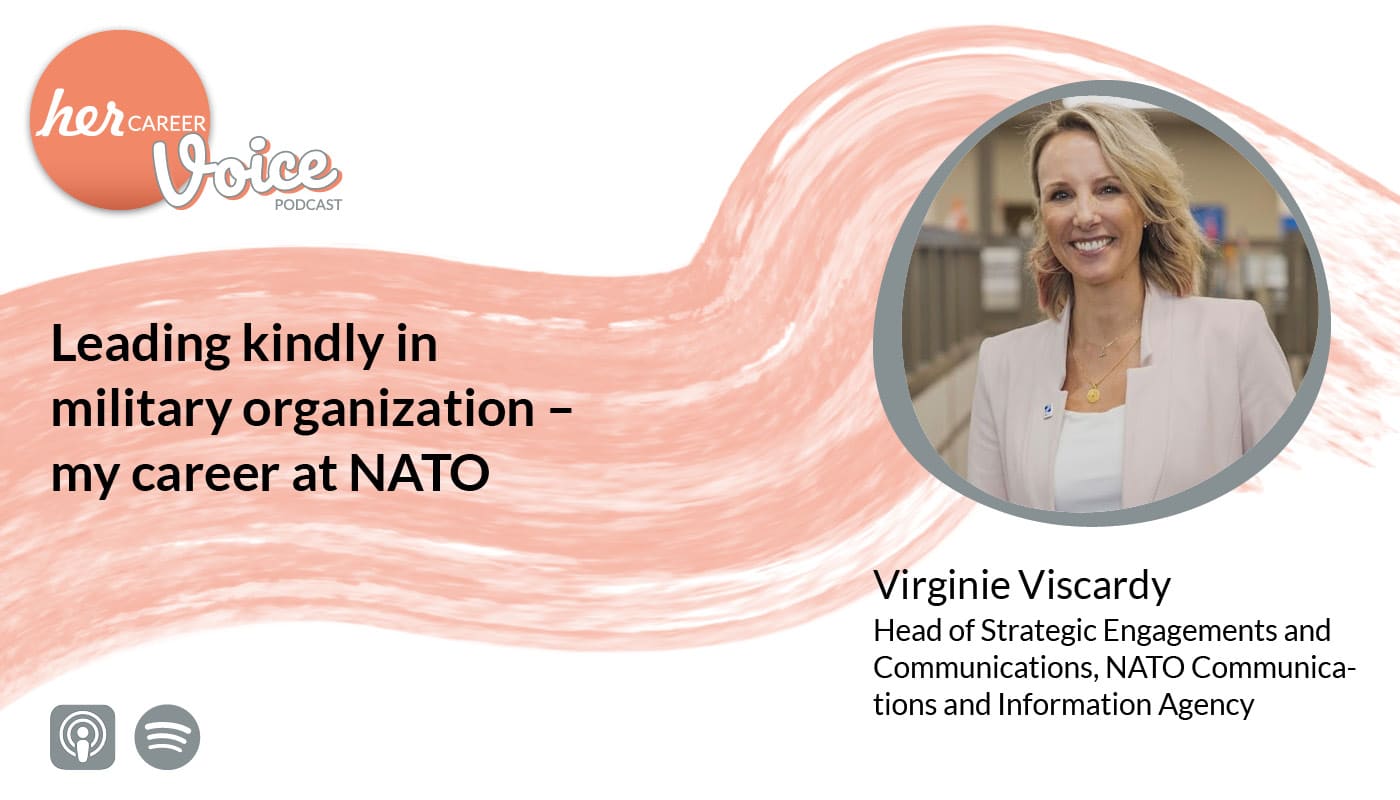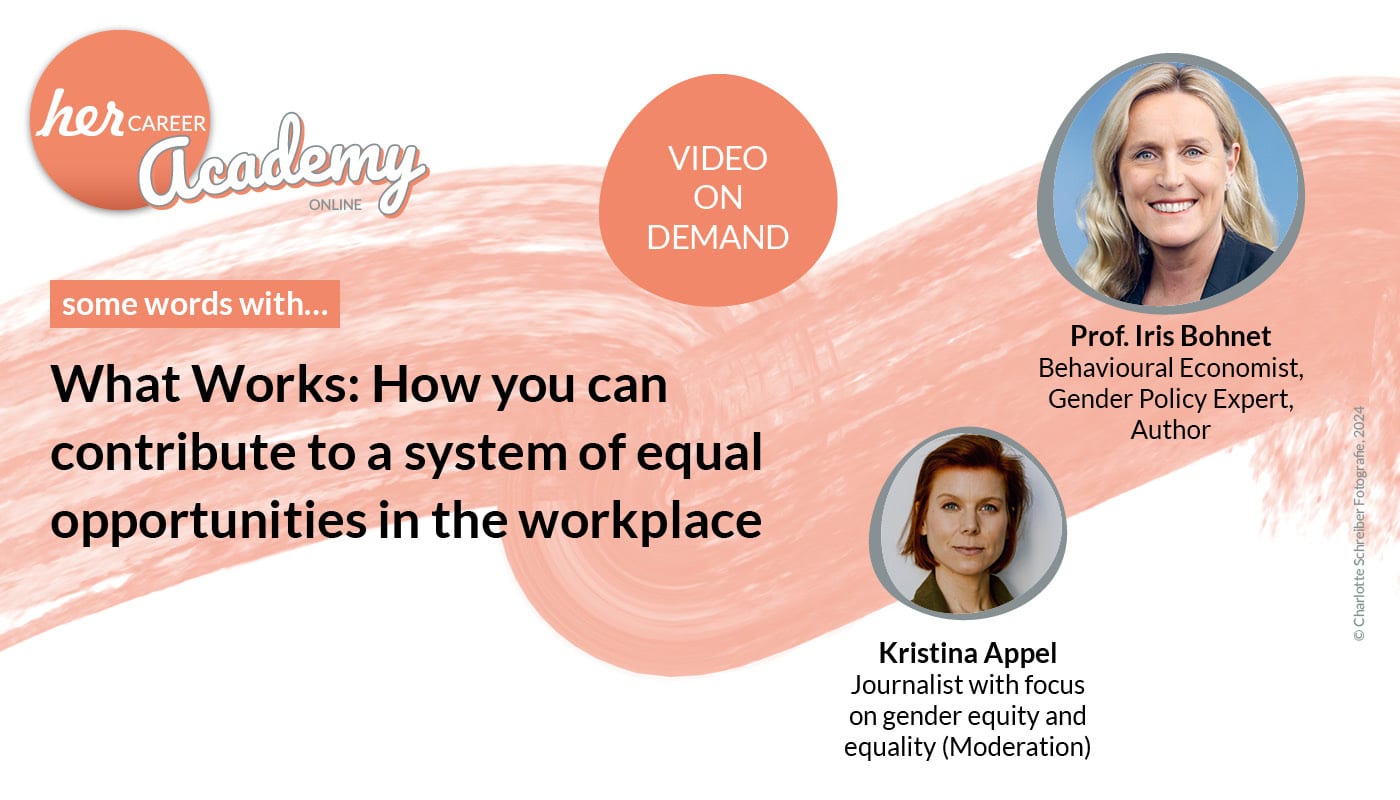Do I need to fake a deep voice? Can I adapt to the work culture? What about wearing nail polish? In this MeetUp you talk to Bahar Ucar, Head of a Business Unit in the automotive sector, which challenges young women face in their everyday life in leadership positions. Bahar shares her experiences as well as the strategies she uses to survive and succeed in a sometimes rather rough male-dominated workspace.
„What helped me a lot „to survive“ is a calm and relaxed attitute.“
herCAREER: Which are your Experiences in a rather rough male-dominated workspace?
Bahar Ucar: Until a month ago, I thought I am working in one particular male dominated workplace. But then I attended a networking event for women, where a speaker asked us who had a male manager and almost everybody raised their hand. Then she asked the same questions for higher hierarchy levels of the companies and everybody replied with male managers. So, at the end she said: „Everybody is working in a male-dominated workspace.“
We are all working in environments, where managing positions are male-dominated. So, I believe there is no significant difference between the branches we work in.
I am experiencing the current spirit for diversity very ambivalent. On the one hand there are these moments where male colleagues do not believe that you are an intelligent being. It happens that they say: „No, that’s wrong!“, to all of your sentences. Even if you say „The sky is blue“ they reply with: „No, it is not!“. Five minutes later someone else says: „The sky is blue“ and they reply with: „Yes, of course it is blue!“. In this moments, I realize the strong resistance against me. It can be an intersectual issue (young, woman, economist) or just my person, but the difference in the acceptance of me and others is more than obvious.
On the other hand I make outsanding positive experiences. One and a half year ago I was pushed forward and I started managing an unit with 33 colleagues. Within the compan, my colleagues ask me for advice and I had the opportunity to develop a strategy for new businesses. The management relies on me more than on others.
This huge differences in the perception and acceptance of women in leading positions demonstrates us how close but also far we are from an equal society and economy. There is still a long way to go, but I am very optimistic that the people who believe Eve was made out of the rip of Adam will be muted soon.
herCAREER: Which strategies do you use to survive and succeed?
Bahar Ucar: I think the big success story is the diversity I bring in. Companies tend to do build teams with people with same expertises and backgrounds. An economist working with engineers was always efficient in projects I worked in. The teams gained a lot from different perspectives and knowledges. Discussions arising from different perspectives were always very helpful and the innovator for the development of new projects and strategies. The composition of our views has brought a lot of new vibes and working culture to our workplace.
What helped me a lot „to survive“ is a calm and relaxed attitute. Sexist notions in both the workplace, as well as society in general unfortunately lead to double standards between women and men: When a men speaks angrily and loudly, he is passionate and assertive. A woman behaving the same way is considered dramatic and unprofessional. In my case, as a woman of color, it is even worse and I end up being seen as the wild exotic and/or hot-blooded woman, whose decision-making process is driven by emotions – not in a positive sense.
In some very hard situations being calm and relaxed was an extraordinary skill that kept me from prejudices that I have heard about other female leaders. They were characterized as „Divas“ and people try to avoid working with them and do not accept their decisions.
herCAREER: Which challenges do young women face in their everyday life in leadership?
Bahar Ucar: Within the past two years working in a leadership position, I have observed that a significant number of women tend to do jobs that require reliability, precision and perfection. The reasons for that are different – they can be put in these positions by their bosses or end up there because of their own decisions. However: Starting from this position, it is more difficult to gain responsibility within a team or for a team – and therefore more unlikely to end up in leadership roles. From my point of view, this is why women get stuck in positions and roles they want to leave. There are more female experts than female leaders. And even if they get a team lead position, it is challenging to leave this perfectionist attitude behind. This attitude can be a real obstacle when it comes to the successful development of a team or a project.Overcoming this attitude starts with simple actions. For example: Sending the imperfect slide of a presentation. The moment you realize that you are not missing any information but starting to optimize it, just push the save button and close the presentation. You save time for other jobs and the presentation is good enough.
herCAREER: At herCAREER, the focus is on professional exchanges, which is based on the personal experiences and the knowledge of the sparring partners. As an organizer, it is also in our best interest to support women beyond the exhibition and make our networks accessible. We would therefore like to ask you if you would also act as a sparring partner in addition to the expo participation. If so, we would ask you to name the topics for which you would act as a sparring partner in bullet points.
- Leadership
- Digitalization
- Corporate Culture
- Sustainability
herCAREER: Would you also act as a mentor in the herCAREER community and, if so, which women would you like as mentees?
Bahar Ucar: I would be a good mentor for women who come from a non-academic background and are looking for an exchange for their everyday situations, which can sometimes be very challenging.
Use one of the ways to contact the interviewee and refer to the herCAREER community interview.
About this person
Bahar Ucar moved to Bavaria (Schongau) as a child of guest workers when she was two years old and grew up in the countryside. She completed her secondary education and studied economics in Munich and Vienna on a scholarship from the Hans Böckler Foundation. Bahar has been working in the automotive sector for five years, initially as a consultant and for the last two years as a manager at a development service provider.
The MeetUp is presented by SWANS Initiative gGmbH i.G. This MeetUp is part of the Career MeetUps at herCAREER 2021, see program for location and time.



